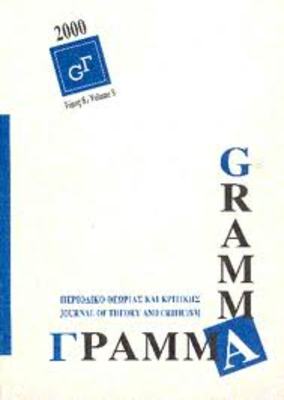The reception of Samuel Beckett in Japan seen through Betsuyaku's play Umi Yukaba Mizuku Kabane
Part of : Γράμμα : περιοδικό θεωρίας και κριτικής ; Vol.2, No.1, 1994, pages 93-109
Issue:
Pages:
93-109
Author:
Abstract:
Among the many avant-garde dramatists of Japan, Minoru Betsuyaku owes to Samuel Beckett the most. Inspite of his indebtedness to Beckett in the 1980's, his more recent works reveal more clearly the affinities and differences in their basic attitudes to the human condition. In 1978 Betsuyaku began an adaptation of Beckett's play Endgame, but it resulted in an entirely new creation of his own. Hamm and Clov now were two veterans wounded in action, No. 1 being wheeled by No. 2. Nag and Nell became Man and Woman, presumably parents to No. 1. The two wounded veterans turn out to be fake, Man and Woman say they are parents not to No. 1 but to a soldier who committted harakiri. As Beckett, Betsuyaku is concerned about how man could retain any significance in his “being” in this world of uncertainty. Hamm will suffer the endgame without its ending. No. 1 will endure a self inflicted constipation. Thus Beckett and Betsuyaku play the same tune but in a different key.
Subject:
Subject (LC):
Keywords:
δραματουργία
Notes:
Περιέχει σημειώσεις και βιβλιογραφία




